Peugeot 308 SW vs VW T-Cross - Differences and prices compared
Compare performance (195 HP vs 150 HP), boot space and price (30100 £ vs 21400 £ ) at a glance. Find out which car is the better choice for you – Peugeot 308 SW or VW T-Cross?
Costs and Efficiency:
Price and efficiency are often the first things buyers look at. Here it becomes clear which model has the long-term edge – whether at the pump, the plug, or in purchase price.
VW T-Cross has a clearly advantage in terms of price – it starts at 21400 £ , while the Peugeot 308 SW costs 30100 £ . That’s a price difference of around 8726 £.
Fuel consumption also shows a difference: Peugeot 308 SW manages with 2.30 L and is therefore clearly more efficient than the VW T-Cross with 5.40 L. The difference is about 3.10 L per 100 km.
Engine and Performance:
Power, torque and acceleration are the classic benchmarks for car enthusiasts – and here, some clear differences start to show.
When it comes to engine power, the Peugeot 308 SW has a noticeable edge – offering 195 HP compared to 150 HP. That’s roughly 45 HP more horsepower.
In acceleration from 0 to 100 km/h, the Peugeot 308 SW is slight quicker – completing the sprint in 7.70 s, while the VW T-Cross takes 8.40 s. That’s about 0.70 s faster.
There’s also a difference in torque: Peugeot 308 SW pulls a bit stronger with 300 Nm compared to 250 Nm. That’s about 50 Nm difference.
Space and Everyday Use:
Beyond pure performance, interior space and usability matter most in daily life. This is where you see which car is more practical and versatile.
Both vehicles offer seating for 5 people.
In curb weight, VW T-Cross is to a small extent lighter – 1267 kg compared to 1484 kg. The difference is around 217 kg.
In terms of boot space, the Peugeot 308 SW offers a bit more room – 551 L compared to 455 L. That’s a difference of about 96 L.
When it comes to payload, Peugeot 308 SW minimal takes the win – 508 kg compared to 480 kg. That’s a difference of about 28 kg.
Who wins the race?
The Peugeot 308 SW proves to be outperforms in nearly all aspects and therefore becomes our DriveDuel Champion!
Peugeot 308 SW is the better all-rounder in this comparison.
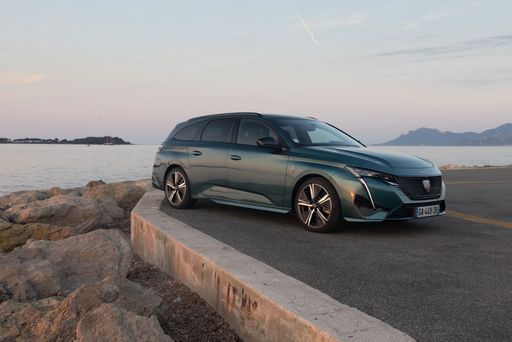
Peugeot 308 SW
Costs and Consumption
View detailed analysis
Engine and Performance
View detailed analysis
Dimensions and Body
View detailed analysis
Peugeot 308 SW
The Peugeot 308 SW blends French flair with estate practicality, dressing up daily chores in a surprisingly handsome package. Inside it's cleverly laid out and comfortable, and the composed, entertaining drive makes family duty feel a little less like a chore.
details
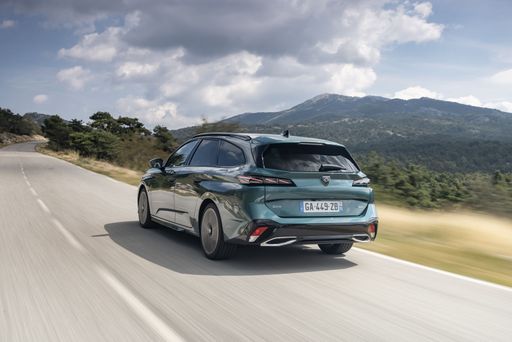
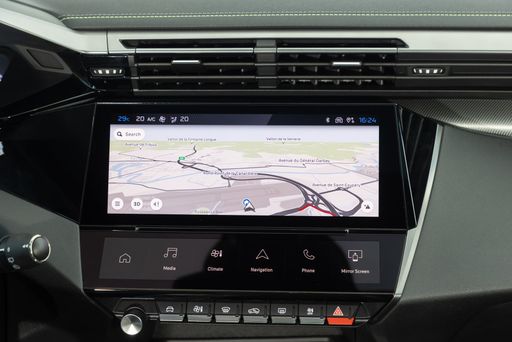
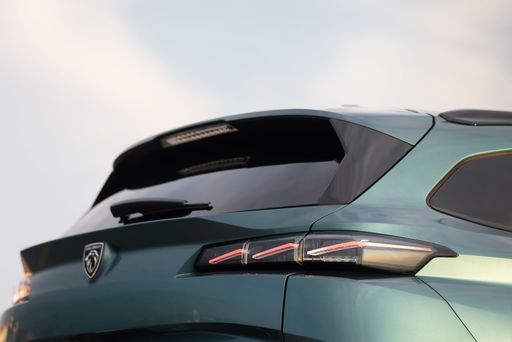
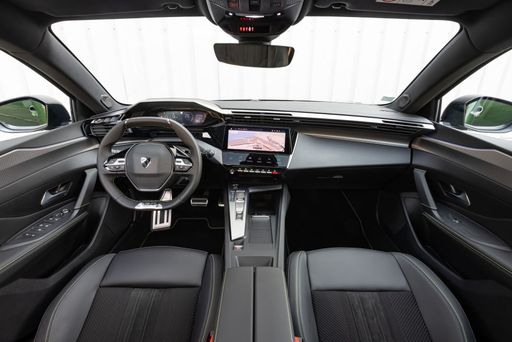
VW T-Cross
The VW T-Cross turns everyday practicality into a style statement, offering a roomy-feeling cabin, clever storage and playful design that suits town life and family duties alike. On the road it's composed and relaxed, rewarding buyers who want the raised seating and confident presence of an SUV without the weighty compromises.
details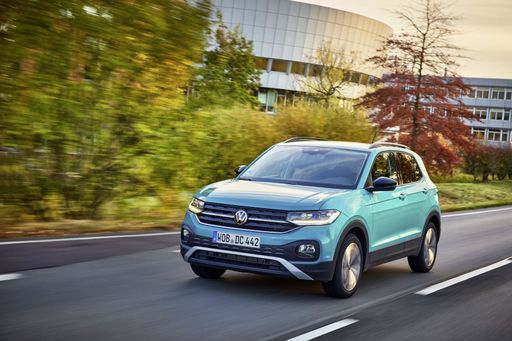
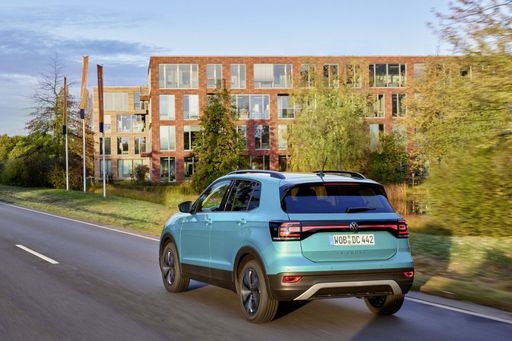
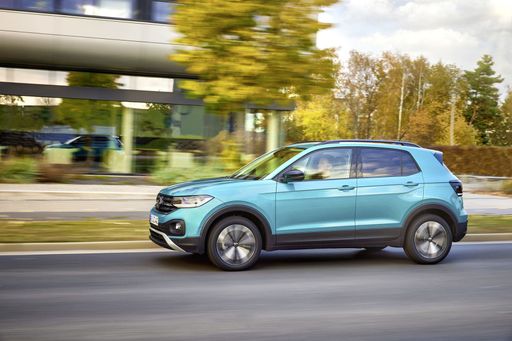
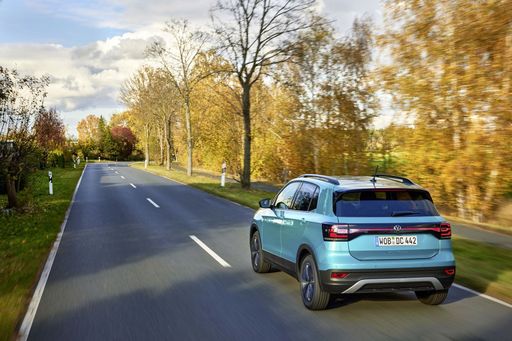
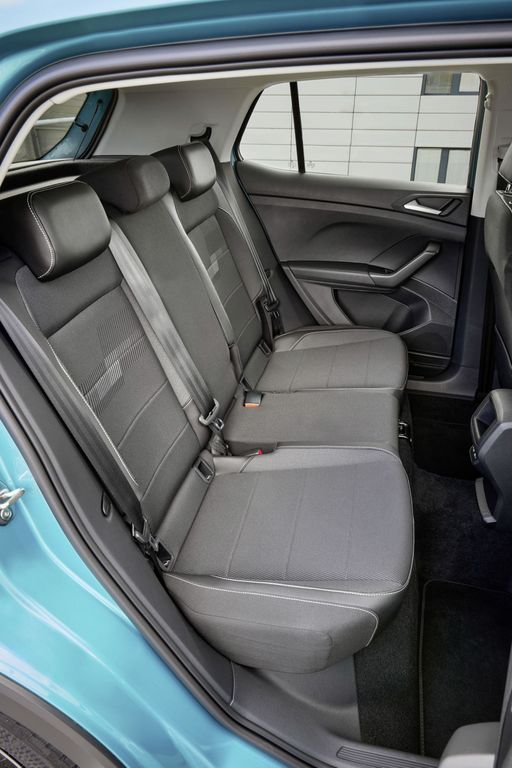
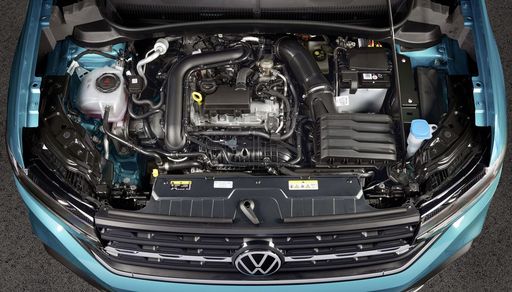
Costs and Consumption |
|
|---|---|
|
Price
30100 - 43800 £
|
Price
21400 - 32000 £
|
|
Consumption L/100km
2.3 - 5.1 L
|
Consumption L/100km
5.4 - 6 L
|
|
Consumption kWh/100km
15.20 kWh
|
Consumption kWh/100km
-
|
|
Electric Range
78 - 410 km
|
Electric Range
-
|
|
Battery Capacity
0.40 kWh
|
Battery Capacity
-
|
|
co2
0 - 130 g/km
|
co2
124 - 136 g/km
|
|
Fuel tank capacity
42 - 52 L
|
Fuel tank capacity
-
|
Dimensions and Body |
|
|---|---|
|
Body Type
Estate
|
Body Type
SUV
|
|
Seats
5
|
Seats
5
|
|
Doors
5
|
Doors
-
|
|
Curb weight
1484 - 1783 kg
|
Curb weight
1267 - 1338 kg
|
|
Trunk capacity
467 - 551 L
|
Trunk capacity
455 L
|
|
Length
4636 mm
|
Length
-
|
|
Width
1852 mm
|
Width
1784 mm
|
|
Height
1438 mm
|
Height
-
|
|
Max trunk capacity
1402 - 1483 L
|
Max trunk capacity
-
|
|
Payload
417 - 508 kg
|
Payload
463 - 480 kg
|
Engine and Performance |
|
|---|---|
|
Engine Type
Petrol MHEV, Diesel, Plugin Hybrid, Electric
|
Engine Type
Petrol
|
|
Transmission
Automatic
|
Transmission
Manuel, Automatic
|
|
Transmission Detail
Dual-Clutch Automatic, Automatic Gearbox, Reduction Gearbox
|
Transmission Detail
Manual Gearbox, Dual-Clutch Automatic
|
|
Drive Type
Front-Wheel Drive
|
Drive Type
Front-Wheel Drive
|
|
Power HP
131 - 195 HP
|
Power HP
95 - 150 HP
|
|
Acceleration 0-100km/h
7.7 - 10.9 s
|
Acceleration 0-100km/h
8.4 - 11.3 s
|
|
Max Speed
170 - 225 km/h
|
Max Speed
-
|
|
Torque
230 - 300 Nm
|
Torque
175 - 250 Nm
|
|
Number of Cylinders
3 - 4
|
Number of Cylinders
3 - 4
|
|
Power kW
96 - 144 kW
|
Power kW
70 - 110 kW
|
|
Engine capacity
1199 - 1598 cm3
|
Engine capacity
999 - 1498 cm3
|
General |
|
|---|---|
|
Model Year
2025
|
Model Year
2024 - 2025
|
|
CO2 Efficiency Class
C, D, B, A
|
CO2 Efficiency Class
D, E
|
|
Brand
Peugeot
|
Brand
VW
|
Is the Peugeot 308 SW offered with different drivetrains?
The Peugeot 308 SW is available as Front-Wheel Drive.




